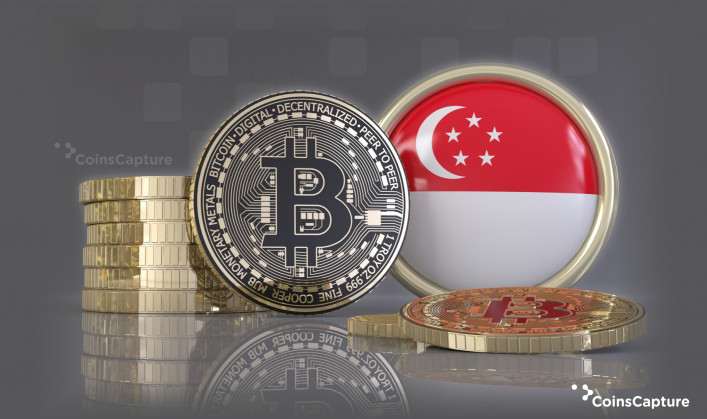7 November 2025
Digital Payment Token & AML Regulations in Singapore
A growing number of monetary scandals pose a serious risk to international economies worldwide. Singapore, being a center of finance, is more vulnerable to fraud and other forms of criminality. Recent financial crime investigations have resulted in the closure of BSI Bank and the imposition of a $30 million punishment against the Singapore location of Falcon Private Bank. In addition, the most current data highlights issued by the Monetary Authority of Singapore (MAS) reveal that between 1 July 2017 and 31 December 2018, one criminal conviction, $16.8 million in financial fines, as well as $698,000 in fines and charges had been levied. Also issued were 19 restriction orders, 444 supervisory reminders, 223 warnings, and 37 reprimands.
Also Read: 6 Leading Crypto Exchange In South Africa For 2022
Since 2014, Singapore has planned to regulate virtual assets in order to combat financial trafficking as well as terrorist funding. To regulate the financial services industry, MAS released the Payment Services Act (PSA) 6 years later. This Act specifically governs "Crypto services," also known as Digital Payment Token (DPT) services. Increasing the range of DPT services subject to regulation, the PSA was amended in 2021. What exactly the changes would happen immediately, though, remains unclear.
Also Read: Top 5 Cryptocurrency Wallets In UAE
Singapore’s Financial Market and Digital Payment Tokens
Singapore law requires a creative approach due to the fact that not all digital tokens have the same architecture or set of features which make them valid payment tokens. There are now four categories of digital tokens—security, payment, asset-backed, and utility—trading in the Singaporean financial market, all of which have been authorized by the government. Therefore, those phrases are employed solely for the convenience of conversation and have no actual legal meaning. The PSA, that went into force on January 28, 2020, defines payment tokens as digital tokens that qualify as either DPTs or e-money. In order to simplify payment processes, the Money-Changing and Remittance Businesses Act and the PSA will be consolidated. It also expands the range of actions subject to regulation to account for changes in the payment services industry.
Which DPT Services are Affected?
Detailed information on PSA 2019's affected services can be found only if you set up or run an exchange where users may buy and sell digital payment tokens (DPTs) for fiat currency, you will be in control of fiat currency and DPTs. Also,it can be one or more types of digital payments, as long as the business facilitates the purchase or sale of DPTs. It is important to note, however, that the services dealing with DPT do not include: Providing a platform for the purchase and sale of DPTs, Taking and making purchases using DPTs and Utilizing DPTs as a form of payment for goods and services. Once the new PSA provisions take effect, the scope of what constitutes "DPT services" will be widened. Services that entail the transmission of DPTs, the offering of custodial digital wallets for DPTs, as well as the facilitation of the exchange of DPTs without the ownership of either currency or DPTs would then fall within the purview of the expanded term.
Monetary Authority of Singapore (MAS) Guidelines on DPT
Digital payment tokens are the primary means of regulation for virtual assets and currencies in Singapore. PSA does not restrict the people from exchanging DPTs. Moreover, a legitimate corporate license is required for any organization offering trading services in DPTs. Any service that involves or facilitates the exchange of DPTs is also termed a DPT service. In contrast to banks and other financial institutions in Singapore, the new regulations include DPTs that have been given legal licenses to perform services under the PSA. In addition, the standards limit where and how a company may advertise its DPT services in Singapore, both in public places and in digital media that might be targeted to the country's population at large.
Licensing Requirements
Licensed companies must comply with the PSA in order to offer DPT in Singapore. Depending on the type of business, an organization can get three types of licenses:
- Companies that provide money exchange services are required to obtain money-changing licenses. DPT services are excluded from this license.
- Companies that provide DPT services, like those that provide 7 certain types of payment services are subject to standard licensing requirements.
- Several types of services, including DPT, can be provided by companies holding major payment licenses that exceed the thresholds for standard payment institutions.
All firms that aid in the sale or distribution of virtual currency are capable of applying for one of three kinds of licenses, with certain exceptions: Anyone conducting enterprise with respect to any of the Securities and Futures Act's regulated activities, including operating a primary platform in Singapore for digital tokens that constitute any type of capital markets product, or providing custodial services for equities related to digital tokens, must obtain a capital markets services license. In Singapore, anybody giving investment advice in relation to a digital token must be licensed as a financial advisor. The people who create or administer a trading system in Singapore for virtual currency that are equities, derivative contracts, or units in a collective investment scheme are required to get either an Approved Exchange (AE) or Recognized Market Operator (RMO) License.
Disclaimer: The author’s thoughts and comments are solely for educational reasons and informative purposes only. They do not represent financial, investment, or other advice.






